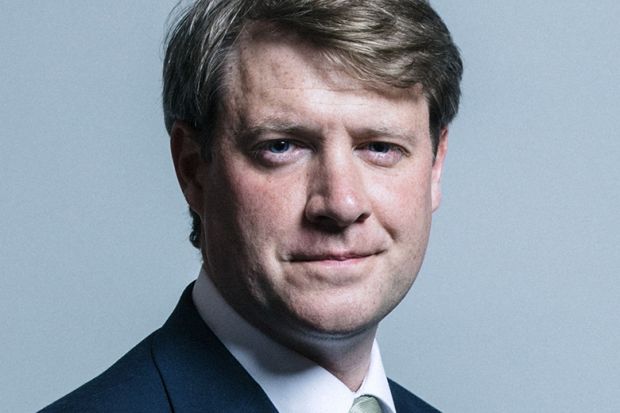England’s university minister his ramped up his criticism of relying on graduate earnings data to measure the quality of universities, warning that it would be “Orwellian” to base government policy on the figures alone.
Chris Skidmore told the Festival of Higher Education at the University of Buckingham, that while “I support the production of data to be available to make policy decisions for the future…we don’t want to be in an Orwellian scenario where Longitudinal Education Outcomes data tells government how to think and governments how to make policy”.
His comments followed the publication of the latest LEO data on 26 June, which showed widespread variations in graduate earnings between subjects, five years after students left university.
Critics have also recently warned the Augar review of post-18 education’s focus on the cost and economic value of a degree exemplified by the LEO data could threaten arts and humanities courses.
Mr Skidmore told the festival that “some of those [arts and humanities] courses do take time to demonstrate career paths”. “It would be a sad world if we all worked for PwC”, he said, referring to the leading accountancy firm.
Mr Skidmore’s stance – an amplification of a speech at the start of June in which he warned that graduate earnings data “in its current form, cannot measure everything” – may be seen as putting him at odds with Damian Hinds, the education secretary. Mr Hinds recently said that universities should drop or revamp courses where graduates do not earn enough five years after leaving university to start making loan repayments.
“It’s important we don’t have a cognitive dissonance in government between recognising the worldwide value of our universities and then criticising the sector for not generating the outcomes we want,” Mr Skidmore said.
Mr Skidmore extended his defence of universities to new student loan repayment forecasts released on 27 June, which showed that the resource accounting and budgeting (RAB) charge – the proportion of outstanding borrowing set to be written off by the government – was forecast to increase from 45 per cent last year to 47 per cent for this year’s cohort.
Mr Skidmore said that he “disagree[d] there are too many students going to university”.
“Ultimately [higher education] is good value for money,” he said. “Look at what international students are willing to pay – far more [than domestic students] for their degree in the UK – because they know they are getting world-class education.
“And it’s not just the individuals who are benefiting. It is also for the benefit of society, training doctors and midwives, subsidising investment in local communities and world-leading research. This ensures the UK will continue to lead the world in the creative arts, and produces the inventors of the future. It is an investment worth making.”
Mr Skidmore also announced the creation of a Disabled Students’ Commission that would work with the Office for Students to develop best practice for universities.




